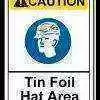-
Welcome to Celiac.com!
You have found your celiac tribe! Join us and ask questions in our forum, share your story, and connect with others.
-
Celiac.com Sponsor (A1):
Celiac.com Sponsor (A1-M):
-
Get Celiac.com Updates:Support Our Content
Spelt?
-
Get Celiac.com Updates:Support Celiac.com:
-
Celiac.com Sponsor (A17):
Celiac.com Sponsor (A17):
Celiac.com Sponsors (A17-M):
-
Recent Activity
-
- catnapt replied to catnapt's topic in Celiac Disease Pre-Diagnosis, Testing & Symptoms2
results from 13 day gluten challenge - does this mean I can't have celiac?
highly unlikely NOTHING and I mean NOTHING else has ever caused me these kinds of symptoms I have no problem with dates, they are a large part of my diet In fact, I eat a very high fiber, very high vegetable and bean diet and have for many years now. It's considered a whole foods plant based or plant forward diet (I do now eat some lean... -
- cristiana replied to hjayne19's topic in Post Diagnosis, Recovery & Treatment of Celiac Disease21
Insomnia help
Thank you for your post, @nanny marley It is interesting what you say about 'It's OK not to sleep'. Worrying about sleeping only makes it much harder to sleep. One of my relatives is an insomniac and I am sure that is part of the problem. Whereas I once had a neighbour who, if she couldn't sleep, would simply get up again, make a cup of tea, read,... -
- SilkieFairy replied to catnapt's topic in Celiac Disease Pre-Diagnosis, Testing & Symptoms2
results from 13 day gluten challenge - does this mean I can't have celiac?
It could be a fructan intolerance? How do you do with dates? https://www.dietvsdisease.org/sorry-your-gluten-sensitivity-is-actually-a-fructan-intolerance/ -
- Lkg5 replied to Matthias's topic in Gluten-Free Foods, Products, Shopping & Medications6
Unexpected gluten exposure risk from cultivated mushrooms
Thank’s for addressing the issue of mushrooms. I was under the impression that only wild mushrooms were gluten-free. Have been avoiding cultivated mushrooms for years. Also, the issue of smoked food was informative. In France last year, where there is hardly any prepared take-out food that is gluten-free, I tried smoked chicken. Major mistake! -
- catnapt posted a topic in Celiac Disease Pre-Diagnosis, Testing & Symptoms2
results from 13 day gluten challenge - does this mean I can't have celiac?
my IGG is 815 IGA 203 but tTG-Iga is <0.4!!!!!!!!!!!!! oh my god- 13 days of agony and the test is negative? I don't even know what to do next. There zero doubt in my mind that I have an issue with wheat and probably more so with gluten as symptoms are dramatically worse the more gluten a product has I am...
-



Recommended Posts
Archived
This topic is now archived and is closed to further replies.